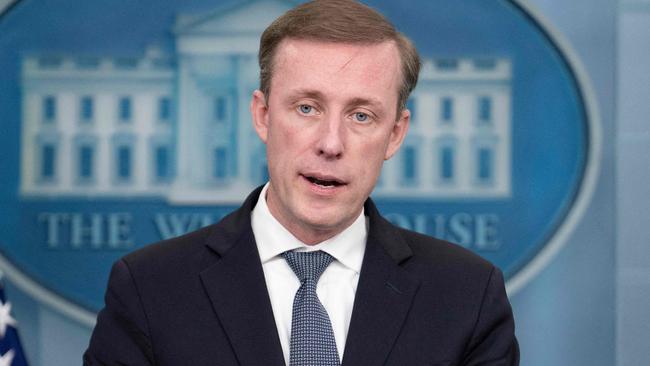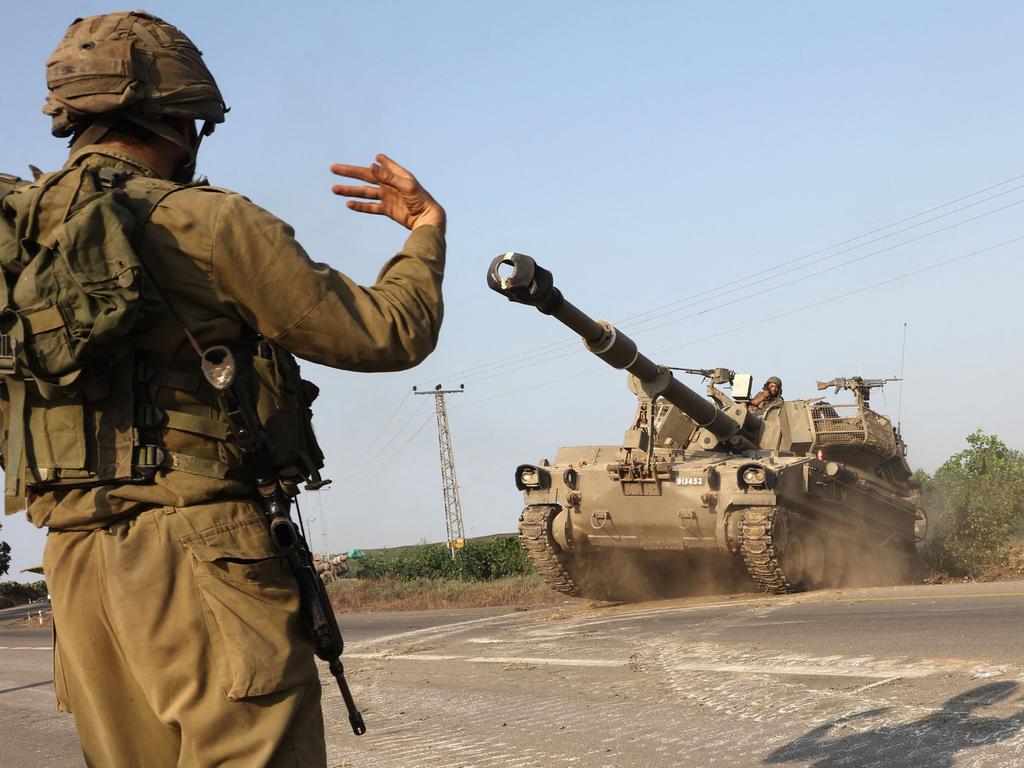Israel at war: American dream of Mid-East peace in ruins
Just over a week ago, one of America’s top foreign policy officials, National Security Adviser Jake Sullivan, told a conference the risk of conflict in the Middle East no longer kept him awake.

Just over a week ago, one of America’s top foreign policy officials, National Security Adviser Jake Sullivan, told a conference the risk of conflict in the Middle East no longer kept him awake.
“The Middle East region is quieter today than it has been in two decades,” Mr Sullivan said.
“The amount of time I have to spend on crisis and conflict in the Middle East today, compared to any of my predecessors going back to 9/11, is significantly reduced.”
The Biden administration’s bigger priorities were the challenge of China and supporting Ukraine after the Russian invasion. Washington nonetheless was working towards a historic rapprochement between Israel and Saudi Arabia, its two most powerful allies in the region.
Riyadh has never formally recognised the state of Israel, but Joe Biden’s administration has helped to broker unofficial talks between the two countries with a view to normalising relations. It is also said there has been at least one unannounced meeting between Benjamin Netanyahu and Crown Prince Mohammed Bin Salman.
A potential deal, the Americans believe, could bring a stability to the Middle East not known for generations. It would neuter Iran, a common enemy, and open the possibility of strong economic ties.
Those aspirations have been dealt a blow by the Hamas terrorist attacks on Saturday, which caught everyone by surprise. Mr Sullivan and his colleagues will have worked on little else since and the Middle East’s latest war looks likely to be an urgent focus of US foreign policy for the rest of Mr Biden’s first term as US President.
America’s priority will be to support Israel but officials will be working out whether the Israeli-Saudi peace deal can be salvaged.
The Saudis reacted to Hamas’s brazen attack by calling for the protection of civilians on both sides. In a statement, the kingdom said it had repeatedly warned of a potential “explosion … as a result of the continued occupation, the deprivation of the Palestinian people of their legitimate rights and the repetition of systematic provocations against its sanctities”.
Blaming the Israelis, if not necessarily for the attacks themselves, but at least for creating the circumstances that encouraged them, will do little to foster close ties with Mr Netanyahu’s government. The Israeli Prime Minister has also declared the attack will “change the Middle East” and vowed “mighty vengeance”.
Only last month Prince Mohammed told Fox News in a rare interview that every day his country and Israel were getting closer but securing a better settlement for the Palestinians was very important. “We need to solve that part,” Prince Mohammed said.
Few believe he regards the fate of the Palestinians as central to his concerns, and his regard for their militant leaders is even lower, but the Gulf kingdom has considerable influence in the Muslim world as the custodian of holy sites in Mecca and Medina, and the Saudis were previously the Arab protectors of the Palestinian cause.
Much as the prince wants to modernise his country, do business with Israel and agree security guarantees with the US, he will be unlikely to risk pushing for normalisation while television news channels show Gaza under bombardment and siege by Israel.
Likewise, the possibility of Mr Netanyahu making concessions, especially on greater rights and freedoms for the Palestinians after the weekend’s terrorist attacks, seems unlikely.
Yet the Americans have not given up. Speaking to the CBS network on Sunday, US Secretary of State Antony Blinken said a deal between the two countries “would really change the prospects of the entire region far into the future. Now, who’s opposed to that? Hamas, Hezbollah, Iran. So, I think that speaks volumes”.
Hamas has already paid credit to Tehran, its sponsor and supporter against the arch enemy, Israel, but the prize of a Saudi-Israeli deal remains the same. Recognition, peace, economic links and a powerful bulwark against a common enemy, Iran, are still on the table.
Mr Sullivan and others will now be having plenty of sleepless nights trying to save it.
The Times







To join the conversation, please log in. Don't have an account? Register
Join the conversation, you are commenting as Logout